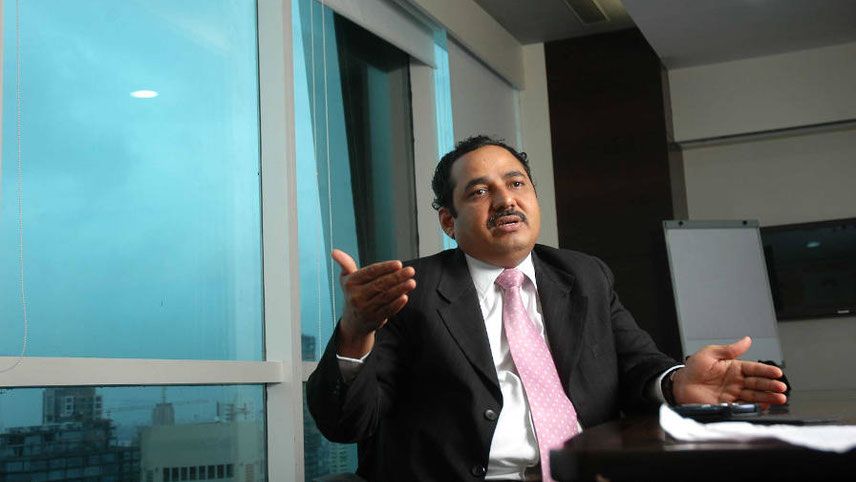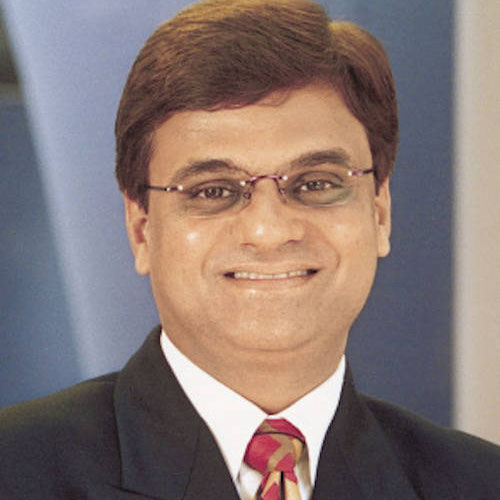-

In the last couple of years there was too much uncertainty as to which PSU would go in for mopping up funds through the follow-on route
Ambareesh Baliga, Market Analyst
The PSU index comprises of 57 companies. Its current market cap is roughly one-tenth of the market cap of the BSE 500 index. The index comprises of companies across sectors. The finance sector, which comprises of banks, has the highest weightage of 35.5 per cent. SBI with a market cap of Rs4.5 lakh crore is the highest contributor to the PSU index.
Oil & Gas and Power are the two other large sectors contributing to 24 per cent and nearly 18 per cent. Coal India, ONGC, Indian Oil, BPCL, HPCL and Concor are the other large contributors. Notwithstanding such heavyweights it is surprising that the PSU sector as a whole is looked on largely for its high dividend yields by investors and not as long term wealth creators. Investors look more at shares for creating long term wealth rather than only dividend yields.
PSUs are perceived as government companies and thus not as efficient or productive as companies in the private sector. “Nothing has been done to change the perception about government PSUs,” says A Balasubramanian MD and CEO, Aditya Birla Sunlife Mutual Fund. The PSU tag need not mean it cannot perform. Many countries have companies which are government owned and doing extremely well.
Most companies in Singapore are government owned. Syntel and Singapore Airlines to name but a few. That the government runs these companies is seen as a strength not a weakness. Companies in Dubai are run efficiently as are companies in Saudi Arabia. Government should not be seen as an interventionist but as a facilitator. Government has not been able to utilise the potential of the PSUs.” Singapore Tamasek Holdings, which is an unlisted company manages more than $425 billion worth of assets.
Till the 90s PSUs had a very strong presence in the country. Divestment as a concept was used for unlocking value as was seen in Maruti Udyog when it became a private company in 1992 after the Government ceded more than 50 per cent of its stake to Suzuki. The government failed to take corrective action during the era of privatisation ushered in the 90s. PSUs were not nurtured.
VSNL, BHEL, MTNL could have done well had enough attention being paid towards making them competitive. SAIL could have been as good a value creator as Tata Steel or JSW had the style of operations been different and it was run like the private sector. The talent was very much present and many steel companies have leadership talent drawn from SAIL. The government did not try to make changes for ushering in efficiencies and improving productivity. Consolidation of State Bank was done only in recent years.
“In the last couple of years there was too much uncertainty as to which PSU would go in for mopping up funds through the follow-on route,” says Ambareesh Baliga, Market Analyst with over 25 years’ experience in the capital market. Uncertainty is something markets dislike. “Governments have been treating PSUs as perennial cash cows, directly or indirectly. While dividends are direct, the mandate to take over other PSUs without looking at the merits of the case is another way of indirectly getting cash funds. ONGC taking over HPCL is a case in point.”
-

Nothing has been done to change the perception about government PSUs
A Balasubramanian, MD & CEO Aditya Birla Sunlife Mutual Fund
Leadership issue
“The problem with PSUs is not good talent but the tenure of the leadership team,” says Deven Choksey, promoter of KR Choksey group and MD of KR Choksey Shares and Securities Pvt Ltd. “Talent is not permanent in PSUs. Having a CMD for two or three years hardly inspires confidence amongst investors. Having a top leader for a year or two, will not make them accountable for completion of projects. Unlike in case of the private sector where the leaders will go all out to complete the project from conceptualisation to completion.”
Choksey adds that rotation of top management is often done without looking at whether the leadership has the necessary skills for the job. “Imposing someone from outside is hardly the solution to fix vacancies. It is also unfair to the people in the leadership team, who have been with the company for years and have to work under a foisted CMD from outside. The government more often than not tries to place good administrators to lead the companies. Administrators do not make good leaders, though once in a while they may. But this is more of an exception. Besides the top leaders, the board of directors are not skilled to take decisions. They are more often than not good bureaucrats, not good businessmen. They cannot take decision and often contribute towards delay in execution of projects.”
One reason why SBI has been able to grow is that the top leaders are always selected from its own group. The Chairman and MD are leaders who have had experience in other group companies be it SBI Mutual Fund, which is the largest fund house, or its Insurance arm or Securities. In other PSU banks, more often than not, a CMD from a totally different bank is foisted to take over leadership. Besides an eventual cultural mismatch, the time given is also very short – normally one to two years. At the top many, knowing that a year or two will hardly make an impact, are not prone to take any risks, knowing any decision taken may be questioned even after 10 years!
While the reasons for the lower perception of PSUs are well known, what is required is quick corrective action. It is all very well for the government to repeatedly say that it should not be in business. But while they are in business they should ensure they run it like any other competitive private sector business. Promotions should, as a rule, be given strictly on merit and not based on seniority. Boards should be truly independent and placement should not be filled with favoured bureaucrats by offering them a plum posting.
Baliga says: “One solution is that the government, instead of paying lip service to giving total operational freedom, has to really put it into practice.” Government has, for instance, given oil marketing companies full freedom in fixing prices of petrol and diesel but more often than not prices are set by ministries with hardly any differentiation in the prices of the major OMCs.
-

The problem with PSUs is not good talent but the tenure of the leadership team
Deven Choksey, Promoter, KR Choksey group
ESOPS as incentive
“One issue to address the perception issue is better communications. The market is willing to sit up and listen,” says Ajay Garg, co-founder Equirus Capital, a full service financial company. Garg who handled one PSU IPO, MMTC a few years ago, says the management of PSUs are quite competent, professionally. What is required is to incentivise the top management.
One issue which the government can consider is to give ESOPs to the leadership team. ESOPs will make certain that leaders ensure there is better perception amongst investors about their companies which will get reflected in higher valuations. Unless the gap between value and price is narrowed down ESOPs may well remain un-encashed.
Empowerment of leaders is also the need of the hour. Says Balasubramanian: “Narendra Modi, when he was the CM of Gujarat, had empowered leaders of state PSUs to run independently. Companies like GSFC, GNFC, GMDC and Gujarat Alkalies are doing well and being run along the lines of private companies. Likewise Government has to relook at the way companies are run. Improving efficiencies of oil companies can easily be done to make them more relevant to investors.”
Tata-like structure can be created
“To ensure continuity and a single point control, there is a need to create a holding company to house all shares,” says Choksey. “A Tata-like structure should be put in place to ensure proper allocation of resources and there should be a professional board which can take decisions and ensure that PSUs create value for all stakeholders. The shares of both listed and unlisted companies can be held by the holding company. This will ensure accountability of the board and more emphasis on performance of the companies.”
Currently all shares of public sector companies are held in the name of the president and control of individual companies is housed in various ministries. The power ministry for instance is tasked with controlling NTPC, NHPC, PFC, REC, NEEPCO, SJVN, THDC (Tehri Hydro), Bhakra Beas, amongst others. The Ministry of Iron & Steel houses SAIL, RINL, NMDC, MECON amongst others. Heavy Industry, Defence, Petroleum, Heavy Engineering, Defence, Ministry of Mines, Coal Ministry are some of the other departments.
With ministers changing regularly as do bureaucrats, there is no real continuity in handling the affairs of the companies. A holding company with a board of thorough professionals drawn from experts in the public and private sector will be able to make leaders of various companies accountable and fund allocation would be done in a more meaningful way based on assessment of the needs of the companies.
-

One issue to address the perception issue is better communications. The market is willing to sit up and listen
Ajay Garg, Co-founder, Equirus Capital
A leadership team would be better able to appraise long term prospects and ensure sustainability and survival. Coal India may well become redundant as demand for coal could dwindle over the next 20-30 years. A progressive management will take steps to diversify now and create two to three other verticals as big or better than the current one.
Mukesh Ambani realised the unfeasibility of dependence on merely oil and gas and created several new verticals – Telecom, Retail, Green Energy – which may become as big or even bigger than what Reliance was earlier. A PSU CMD with a tenure of two or even three years is hardly likely to take such decisions which may take more than 10-15 years to fructify.
It is not that the government is unaware of either the problems or solutions. It is taking corrective actions to improve the performance and change the perception of PSUs. But a lot more requires to be done and a government which has the mandate of the people needs to take decisive action to bring PSUs back to their pristine glory. Mere divestment is hardly the panacea. If anything, the government can cede majority stake through IPOs and still retain control and ensure, PSU tags or not, that companies can compete in the marketplace like any other private sector companies.
One added advantage of ceding a little over 50 per cent to the public is that this will allow the companies to get rid of the PSU tag. As a PSU they are deemed to be a state under the constitution. It will also be out of the purview of CAG and CVC. No writ petitions can be filed against them and valid decisions will not be questioned. Valuation may also go up once the PSU tag is absent.






































